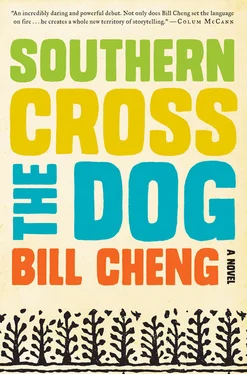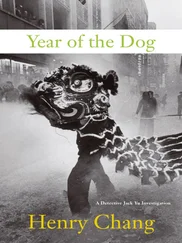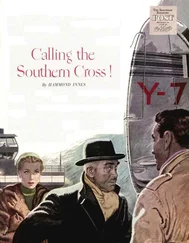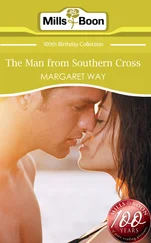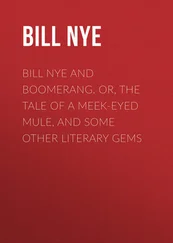They passed the days together, hiking through the dank country, trying to read the earth.
She’d slip her finger into his mouth and read the wind. Then they’d huddle under blinds of peat moss, breathing the same air, sweating through the same dank stink. Their muscles cramped and twitched and jumped, and they could feel the other’s nerves sparking in the too small space.
Hours would pass. The sun would slide loose from its chamber, then down.
Most days, there was nothing.
They’d crawl from the blind, their limbs numb, crazed from hunger. In what little light they had left, they’d head back to the dugout. They’d start a fire and strip off their larrigans. Robert would lie under the warmth of his coat, the blood finding its way again to his limbs. They grubbed on beans and boiled hominy, swallowing it down before it had time to cool. They slept close to the fire, their backs huddled against each other for warmth.
On the trails, she showed him how to tie a sapling into a snare. Watch my hands, she said. They were smooth, white, bending down the stem, working it back, then around. She made a noose of a length of wire and strung it to a stake. She tripped the snare and the sapling unraveled. You try, she said, and he knelt beside her. He forced the tip down, hard so he thought it would snap from its roots. Slow, slow, she said. Take your time. He tucked his lip under his teeth, forced his thoughts to a single point. There were weights and pressures, angles of force. The sapling whipped away from him. Try again, she said.
He anchored the tip with the heel of his palm, the tension building in the still green bough. The sapling strained under the weight, and he threaded the wire back, around. Above him, the sky turned, the earth countering, each grinding to its place. He felt her at his shoulder, felt the space she took. There was a spreading quiet. It rippled outward, crawling, searching. The world bent to his hands. He rested his foot against the stake, pivoted, smoothing the bend. All at once, the trap sprang free. Something cracked beneath his eye. There was fire in his palms.
You bleeding, Frankie said.
Robert looked down at his hands, but it was his face she was staring at. She pressed her thumb to his cheek, forcing up the skin.
He swallowed, still in shock. The sapling stood upright.
She stitched him up, his head across her lap, him gazing into the sky of her face. From under her hat, strands of hair hung down, falling toward him like a rain. Her forehead smoothed and furrowed. Small noises gathered in her throat. He felt the thread passing through his flesh, tugging at his cheek. He tried not to wince, to keep his head still. Her hands padded across his face, angling and reangling, finding new purchase on his nose, his chin. When she finished, she swabbed his wounds and bandaged his hands.
Not so bad, she said.
He lifted his head from off her lap and sat himself up. She held the bloody cloth in her hand. I go bury these, she said. You stay here. She left him alone, and he felt along the raw terrain of his face. The gash wasn’t large. No more than an inch. In time, it would heal but it would leave a scar — a smooth waxen grin beneath his left eye. His mama’s baby boy. Uglied for life.
Night fell swiftly through the woods, driving through the ancient trees. There was no sound. No birdcall. His breath looked brittle and strange in the bruised light.
He was free. If he chose, he could’ve walked out of Panther. No one would have stopped him. The days would pass, and every day he would renew his promise to leave. He could start again, go into town, try to find work. But he didn’t. He would wake in the middle of the night, trembling without understanding why. He’d bolt upright in his roll, cough out the thick black air in his lungs, and stare restlessly at the edge of camp. He would hear the wind through the boughs, piercing and wounded, and he would draw the rug around him and try to shake the howling in his brain.

THEY WERE TWO SHAPES RISING over the western hill, black in the dusk. For a time, the clouds broke and they crossed under the star cover, the valley a bowl of silence around them. By dawn, a storm had gained and overtaken them. They moved against the gusting and slashing rain, their loads heavy, their stomachs light. By midday, they arrived back at the dugout.
Frankie took him by the arm and led him up the path to the house. They changed out of their clothes and she lit the stove and brewed coffee. He gazed moodily out the window, moving his hand from time to time to wipe the sheen from his nostrils.
He turned abruptly and found Frankie staring at him, her eyes red, the coffee in an urn in her hand.
This is a look of someone who has lost something, he told himself. That is all.
But her eyes were fixed to him, filling with wet. And when he spoke up in a weak voice — What’s wrong? — she dropped the urn and burst into tears. She fell upon him, and in his shock, he found himself holding her. This white woman. The walls groaned, settling against the yielding mud. Against the dugout, water lapped against the boards, sluicing away the earth.
Her hands were wringing. He looked at her and she tried to force a smile. He knit his brow together. He took her hands and folded them into his own. They were so warm. A single sob broke from her throat. She tamped it down and shut her eyes. She stood up, leading him by his hand. They crossed into the other room, pulling the curtain aside. She laid him down on a pallet of soft hay and nestled herself into the crook of his arm. She put her mouth against his, the sharp bone of her nose digging into his cheek. Blood flooded her mouth. He heard his breath dam in his chest. She worked loose his trousers, slid down her pants, and guided him into her. The ground canted and heeled. She could feel him gripping her hips, his body rocking against her. She flexed against him. He was inside, pressing into her. He felt himself expanding inside her, and then at once, it was over. She climbed off and lay beside him, the both of them breathless and raw.
ROBERT WOKE TO SNOW. OUTSIDE the tanning shed, it fell mutely, a faint crinkle like bolls of cotton pulled apart. He opened his eyes. Through the slats of the shed ceiling, he saw daylight. Frankie had let him sleep. He threw off the bearskin rug and went to light the smudge pot. He had not witnessed a snowfall before. The flakes were small and hard to see against the wool-white sky. Against the line of trees, they were clearer. Fine white grains gliding down in slow drifts, as if they had been shook loose, almost accidentally, from some far chamber above the world.
In the distance, Frankie approached from the woods. They saw each other and she hailed up one hand. Robert returned her wave. She raised the other arm, hoisting up a sack that she’d been carrying. Her face, he saw, was red and beaming. The snow fell around her, dusting her shoulders. Robert took a slow breath. The sky yawed wide above them, filling with soft white dander. It was warm still. It would not stick. But for the moment the Flats looked frozen under glass, cut off from the rest of the world. She neared, and his anticipation rose. A brassy twang inside his gut.
Sleep you good?
Say bon, he found himself saying.
She slung down her sack and warmed herself beside the smudge pot.
What’d you get?
She grinned at him.
Take’n you look.
Robert worked open the sack. At the bottom of the canvas, wrapped, was a set of three rabbits. He held one out by its scruff.
T’night, grease’n we on meat, she said.
They roasted her catch over hot stones. The meat was hot and greasy. He hadn’t realized how hungry he was. He sucked the flesh off the bone and spooned the fat with his fingers. He could hear Frankie telling him to slow, but he couldn’t. His hunger raged like flash powder. He burned his tongue and he scorched his throat and steam let from his open mouth. Still he ate, sucking his burned fingers, licking the bones. He gnashed them, sucked out the marrow. He ate the eyes and the head, spitting out the tiny skull.
Читать дальше
